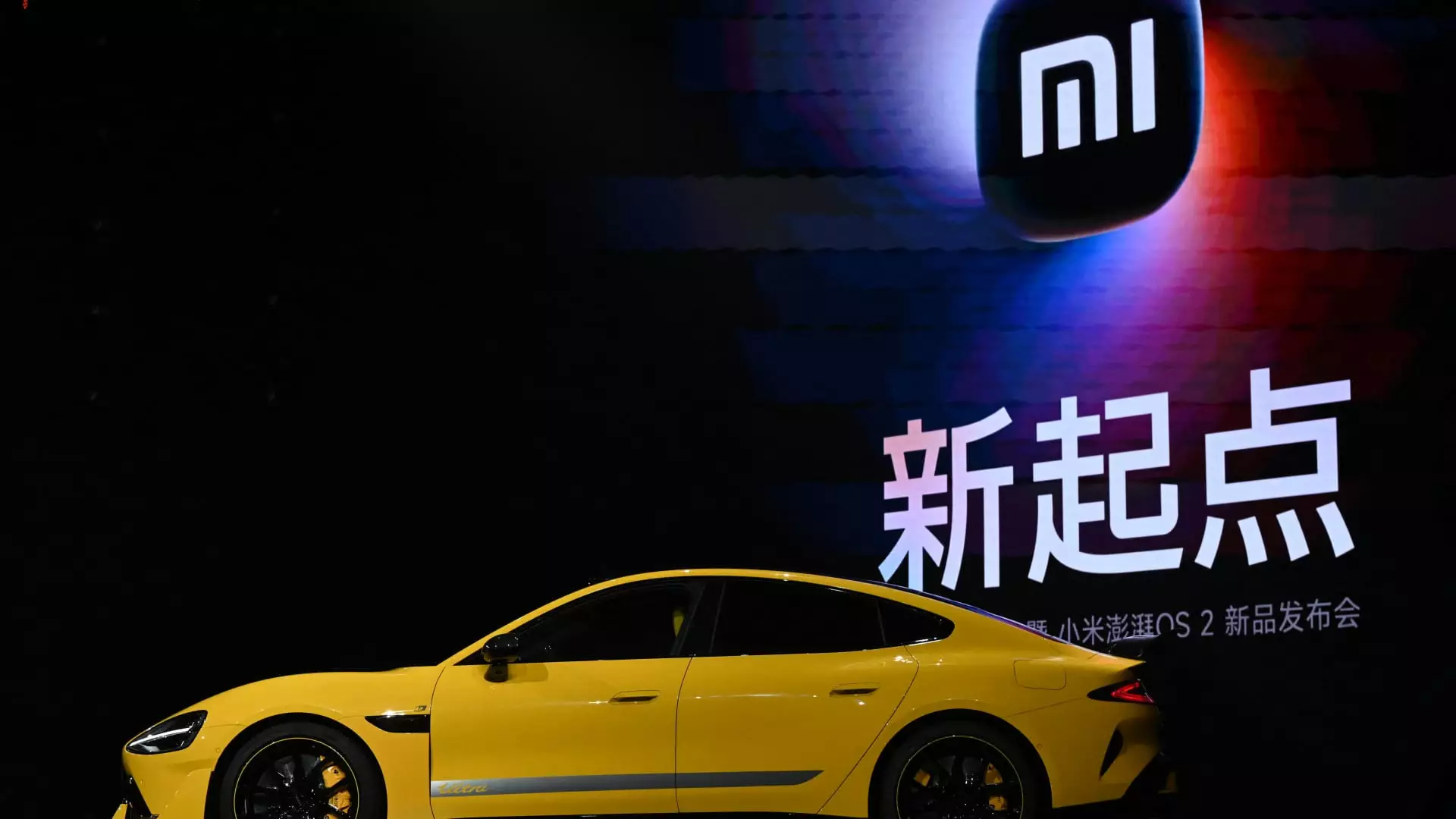China’s dynamic electric vehicle (EV) sector has gained immense traction, significantly influenced by technological giants like Xiaomi. Despite its roots in consumer electronics, particularly smartphones and home appliances, Xiaomi has made noteworthy strides in the automotive landscape. The company recently reported a remarkable achievement: delivering over 20,000 SU7 electric vehicles (EVs) in the month of October alone. This surge not only signifies a robust production capability but also sets the stage for further expansion in a highly competitive industry.
Since announcing its foray into the automotive market in 2021, Xiaomi has been unwavering in its ambitions. The latest data highlights that the company aims to deliver a staggering 100,000 SU7 units by the end of November, showcasing a timeline that demonstrates efficiency and determination. For context, Xiaomi’s predecessors in this sector—such as Xpeng and Nio—took approximately six years to reach the milestone of 100,000 EVs. Meanwhile, Tesla achieved that in twelve years. Xiaomi’s rapid delivery pace is a testament to its strategic planning and execution skills.
The SU7, marketed at a competitive price point—approximately $4,000 less than Tesla’s Model 3—has further established Xiaomi’s position in the marketplace. Tesla responded to the pricing with its own price cuts, suggesting that Xiaomi’s entry has significantly shaken the market dynamics. The competition in EV pricing is fierce, underscoring the importance of affordability in attracting a broad customer base.
The EV market in China is characterized by numerous players vying for dominance, leading to a turbulent environment where innovation and aggressive pricing strategies play crucial roles. In a previous month, Xpeng achieved record deliveries, supported by its recently launched lower-cost brand, Mona. Nio, on the other hand, has faced challenges in maintaining its delivery numbers above the 20,000 mark each month.
Carmaker Geely’s electric brand, Zeekr, also showcased impressive performance with its own rapid growth, delivering over 100,000 vehicles within just a year and a half of operation. These benchmarks highlight the incredible pace at which the EV sector is evolving in China. More illustrative of Xiaomi’s progress is that, despite its shorter stint, it has achieved over 75,000 SU7 deliveries to date, showing promising growth potential.
The forward-looking strategies employed by Xiaomi include not just the release of budget-friendly vehicles but also the introduction of premium models. This was underscored by the preorders for the high-end SU7 Ultra, which garnered over 3,600 preorders within 10 minutes, highlighting consumer enthusiasm. Analysts from Citi predict a rise in deliveries to 250,000 units next year, an upward adjustment from their previous forecast of 238,000. Such projections indicate growing confidence in the brand’s future in the EV segment.
Xiaomi’s recent claims regarding its prototype SU7 Ultra being the fastest four-door sedan to conquer the Nurburgring racetrack speak volumes about its engineering capabilities and marketing strategy. Additionally, the unveiling of Xiaomi’s flagship smartphone, the Mi 15, has synergized with its automotive endeavors, potentially leading to higher smartphone shipments as the two sectors can complement each other under the umbrella of technological innovation.
As Xiaomi aggressively establishes itself in the EV race, its distinct strategies continue to resonate within the industry. With the commencement of vehicle sales limited to China, the company is reportedly eyeing international expansions—albeit cautiously, given the three-year timeline for overseas launches projected earlier this year. This conservative approach may allow Xiaomi to iron out operational and marketing strategies before venturing abroad.
Xiaomi’s surge in EV deliveries, competitive pricing, and plans for future models signify its determination to be a serious contender in a saturated market. As the industry watches closely, Xiaomi’s performance will undoubtedly influence the broader dynamics of the electric vehicle landscape, as it strives to carve out its place on the global stage. The electric vehicle market is continuously evolving, and with each milestone, Xiaomi is not just pursuing market share but is also reshaping the future of transportation in China and beyond.

